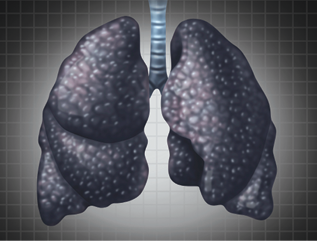
Black lung back
A fifth case of black lung disease has been confirmed in Queensland, prompting suggestions the numbers so far are just the ‘tip of the iceberg’. The potentially fatal disease, which can affect coal workers, was thought to have been eradicated in Australia, until new cases were discovered in Queensland’s coal industry last year.
CFMEU State Mining and Energy Division President Steve Smyth said the latest man to be diagnosed with black lung had submitted documents for a worker’s compensation claim this week and his Xrays and scans had been sent to the United States for further examination.
Apart from the five confirmed cases of black lung so far, there are another five ‘potential cases’ in which the patients are waiting for the results of tests. The Union has called for a public inquiry to examine a range of issues including why in the 21st century Australia does not have qualified people that can read Xrays to the required standard. (Source ABC).










































































































































